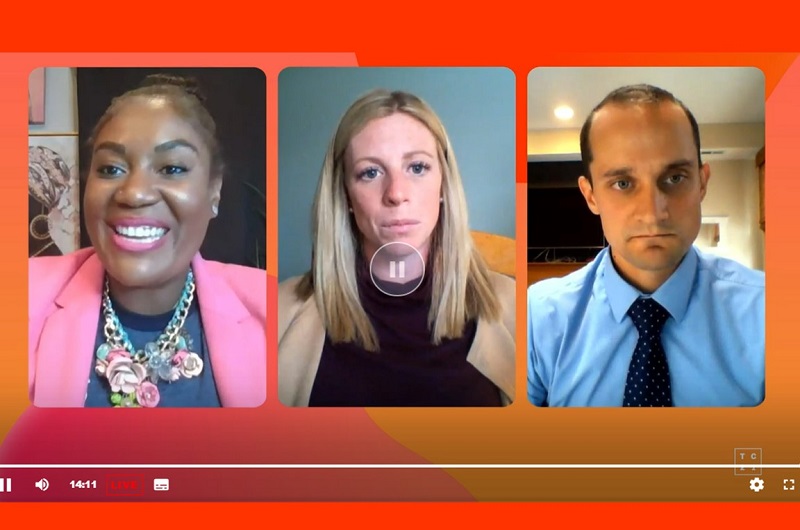Event Summary November 16, 2021
Tableau Conference 2021 – The Need for Change: Improve Health Equity with Data
A virtual event.
Isabelle Primer attended The Need for Change: Improve Health Equity with Data session led by UChicago Medicine at the 2021 Tableau Conference.
The Tableau Conference is a 3-day event focused on learning, connection, and inspiration of all things data. This year, the conference was held on November 10th through the 12th, and featured keynote speakers, like the President and CEO of Tableau, Mark Nelson; Events, such as the world’s largest data visualization competition, the Iron Viz, where contestants compete for a $10,000 cash prize; And even an exclusive performance by Grammy-winning musician Beck.
In the Health Equity session, UChicago Medicine’s BI Lead, Mark Connolly, and Executive Director of Clinical Data and Analytics, Mary Selling, participated in a Q&A with Senior Academic Program Manager at Tableau, Jessica Lyons, and discussed UChicago’s data-driven response to COVID-19 and their Equity and Opportunity Lens dashboard.
Through partnerships across their clinical care, analytics, and IT areas, UChicago leveraged existing data infrastructure to provide meaningful, real-time COVID-19 reporting for their organization. Most notably is the COVID-19 Real-Time Status dashboard which Operational and Infection Leadership used to track real-time demand that COVID-19 placed on the UChicago health system.
However, the bulk of the Q&A session focused on what UChicago noted they are most proud of—the Equity and Opportunity Lens. This dashboard provides insight across nine unique categories that create opportunities for data to be catalysts of Health Equity change. UChicago explained that although the dashboard helps create undeniable facts across the board, it also helps to identify what data is missing. A key finding was the absence of Sexual Orientation and Gender Identity (SOGI) data collection. An example of the dashboard can be viewed here: Equity & Opportunity Lens.
The last question asked by host Jessica Lyons was a personal one: Why do providers ask so many questions about myself and my health? What are they doing with this data and how does it impact my care? UChicago’s simple answer: Providers want to bring patients into the conversation, and personal questions and data collection leads to better, more informative data, which translates to improved patient population care.
To learn more about Trexin’s Health Equity Practice Area, click here.

